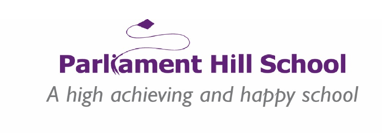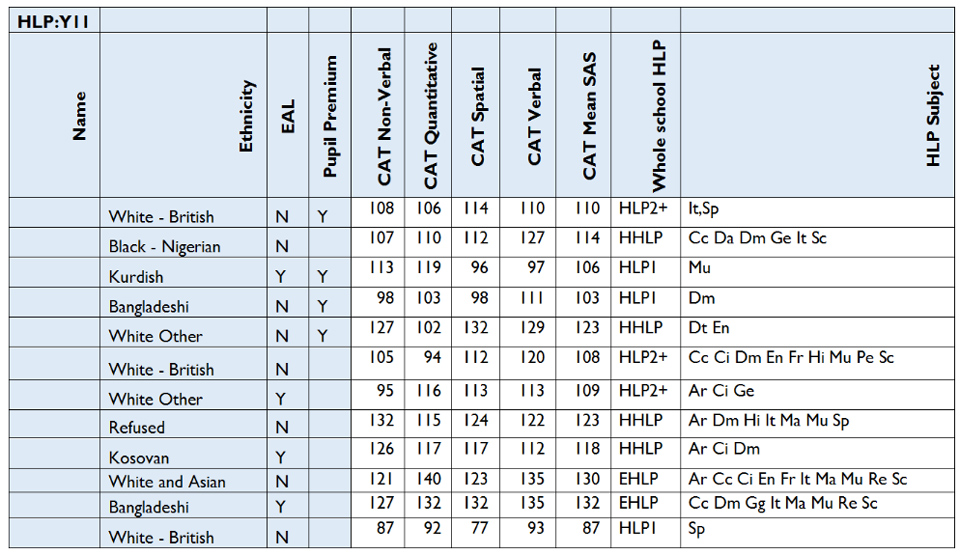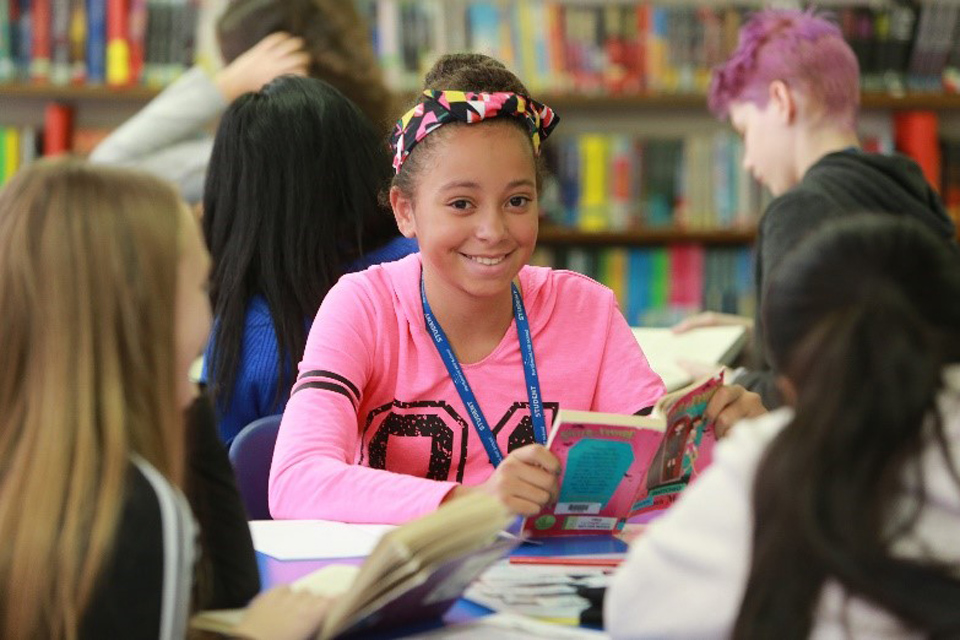Joy Morgan is the Specialist Leader of Education at Parliament Hill School, London. Parliament Hill School received the Above and Beyond Awards Effective Provision in School Award in 2019.

The School in Context
Parliament Hill School (PHS) is a large, fully comprehensive girls’ community school in Camden and part of the popular LaSWAP Sixth Form consortium. Economically and socially, the school reflects its complex, challenging inner London environment and is proud of its rich cultural and racial diversity, with 67% of non-white British learners and 41 languages spoken.
Although the school enjoys the confidence and support of local middle class families, many of our learners come from low income families facing high levels of economic deprivation and the associated social disadvantages e.g. housing difficulties, family stress, ill health and low aspirations for education and employment:
- PHS is one of the 20% of most deprived schools in the country with 49% of learners eligible for Pupil Premium
- Significant numbers are carers, e.g. families with drink, drug or mental health problems
- 12% have special educational needs
- 10% come from refugee and asylum backgrounds
GCSE Results 2019
Progress 8 was +0.81 and, for high prior attainers (HPA), +0.7 (+0.9 without three outliers). 42% of all grades were Levels 9-7. Disadvantaged learners are doing particularly well, achieving P8 of +0.52. Disadvantaged HPA achieved P8 of +0.38 (+0.6 without three outliers).
Subject L7-9 Results
43% of learners in English Literature and 38% in English Language, 31% in Maths, 45% in Citizenship, 77% in Biology, 78% in Chemistry, 73% in Physics, 36% in Geography, 41% in RS, 37% in French, 46% in Spanish, 37% in Art & Design, 48% in History, 67% in Music, 39% in Drama.
Whole School Approaches
The school’s motto is, High achieving and happy. We are determined that success does not come at the expense of good mental health or the chance to enjoy the teenage years. PHS believes that a ‘rising tide lifts all ships’ and is committed to mixed-ability teaching; we do not stream or set except in Maths. We encourage ‘Planning from the top’ so that there is no cap on learning whilst appropriate scaffolding is in place for those who need it.
Our aim is to develop divergent, creative and critical thinkers, enquiring minds and resilient learners. We work closely with Potential Plus UK to strengthen partnerships with parents and, where necessary, to raise aspirations and support learners in realising their ambitious goals and dreams, building cultural capital for disadvantaged learners.
PHS invests heavily in professional learning; Learning Communities and Inquiry Projects have helped to embed the culture of high levels of stretch and challenge by providing opportunities for teachers to engage with research and experiment together. Literacy has been a focus for several years and the current priorities are oracy, metacognition and memory.
“Do you know what to do when you don’t know what to do?” has been a useful phrase, encouraging learners to use a range of strategies when struggling in the infamous pit! Once at university, the ability to cope when the learning is really challenging will be so important, particularly for disadvantaged learners.
The HLP Lead is a member of the senior leadership team, as is the SENDCo, which has been invaluable in driving improvement and has ensured that Dual or Multiple Exceptionality learners, those with both SEND and HLP, are identified and nurtured.
Identification
There is no quota system for our HLP register and, once on the register, a learner is never removed. The register is drawn up in 4 categories, with the new Year 7 intake register ready to appear on class lists before teaching starts in September –
- Exceptionally HLP (EHLP) learners are of extremely high ability, within the top 2% of the population. Typically, this is 2-4 learners per year group. This is based on CATs scores (mean of 130+) and KS2 data.
- Highly HLP (HHLP) learners are identified using data from primary school and CATs scores (114+).
- HLP2+ and HLP1 learners are nominated by teachers for inclusion on the subject registers. This happens in November for Year 7 and is reviewed for all year groups every June although nominations can be made at any time. HLP2+ indicates a learner has been identified in 2 or more subjects and HLP1 is one nomination only.

Parliament Hill School Year 11 HLP Register
Quick Wins
- During gained time in the summer term, every subject re-wrote their first Year 7 Scheme of Learning (SoL) to increase the levels of challenge. This had a significant knock-on effect as learners rose to the higher levels of challenge so raised teachers’ expectations for subsequent SoL.
- Every subject runs at least one L9-8 workshop in the Spring Term of Y11.
- HLP learners attend a study skills workshop separately to the rest of Y11.
- Every subject has a bank of Level 9 GCSE exemplars and, more importantly, teachers routinely use live modelling so learners can work through the process of getting to Level 9.
- Every SoL identifies extensions to learning, e.g. talks, journal articles, reading, websites, places to visit.
- Extension work has been replaced with ‘light bulb moments’ which provide exciting, different challenges (never more of the same).
- The best Year 6 extended writing is stuck into the front of every book/folder so teachers understand the high standards achieved at primary school.
Learner Leadership
PHS has a number of learner leadership projects, two of which are aimed specifically at HLP learners:
- Co-planners: learners are trained to co-plan lessons with teachers
- Students as Researchers (STARS): learners working with a member of staff with a PhD to carry out undergraduate level research into identified areas of PHS priority.
Wise Words from Kate Treacy, English Team Leader
Over the last five years we have created a unique and challenging curriculum for all our learners. Of course want to give them a great foundation in the Canon of Literature – that is, after all, what we love as teachers. But equally we want to give them the tools they need to navigate the very complex cultural spaces they occupy on a daily basis. We believe that we have created a curriculum that fosters the confidence to question, analyse and debate and make active choices as consumers of all culture.
We use the freedom in KS3 to turn our learners into the type of thinkers they need to be at KS4 and 5. We have made some brave choices. Where many schools choose A Christmas Carol as a GCSE text we read it in Year 7. Our approach to the text balances close analysis, consideration of context with creative thinking tasks. In contrast, we also have a current affairs unit in Year 9 where we use the same analytical skills to explore the impact of celebrity culture of the media and news.
At KS4 we swim against the tide somewhat in our choices of Jane Eyre and the Short Story anthology, believing that these texts allow our learners to grow even further as readers and thinkers. We do not believe that a broad and exploratory curriculum is mutually exclusive to exam success and we are very happy to say that this has been reflected in the high academic success of our learners across the ability range.






